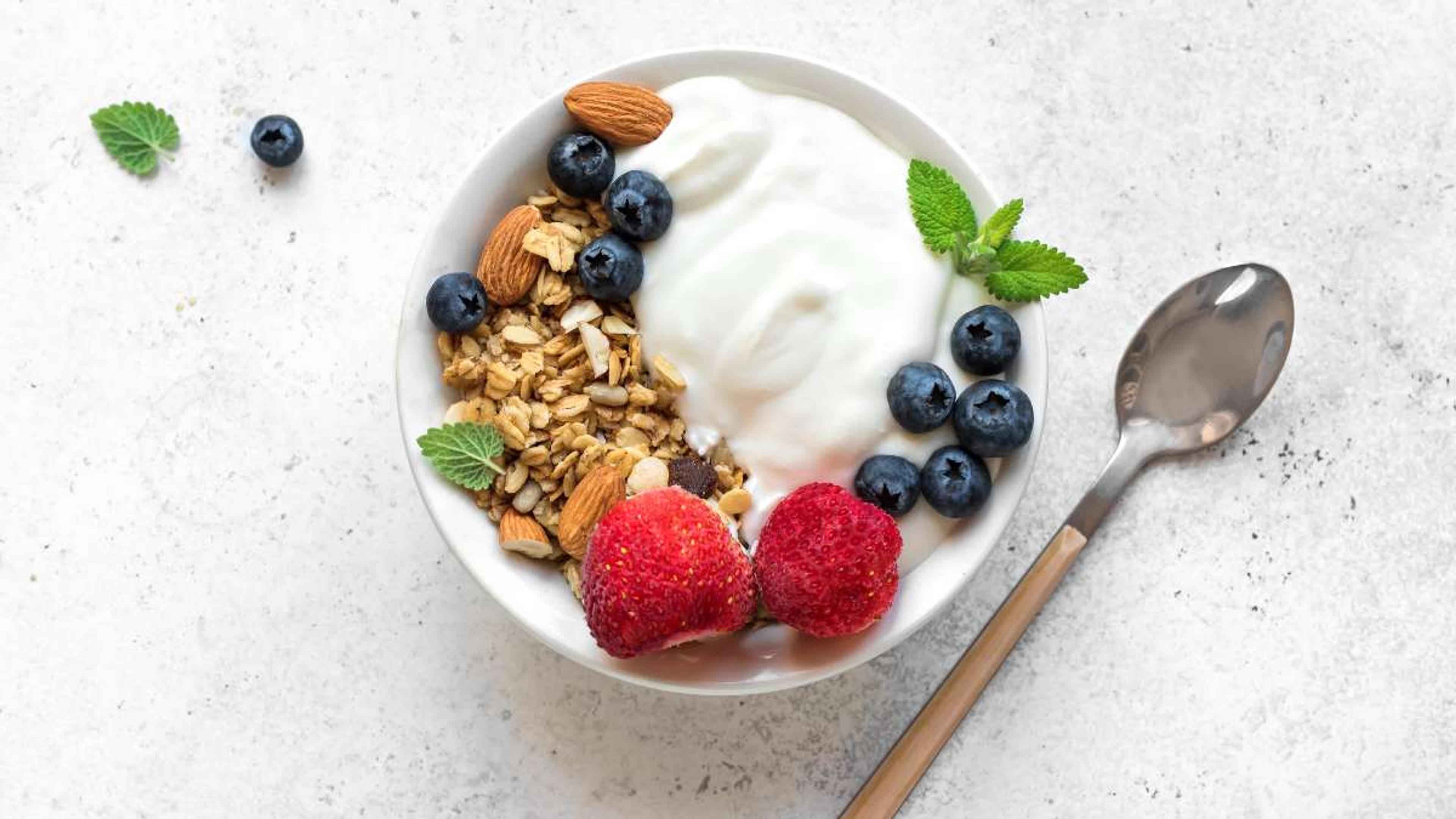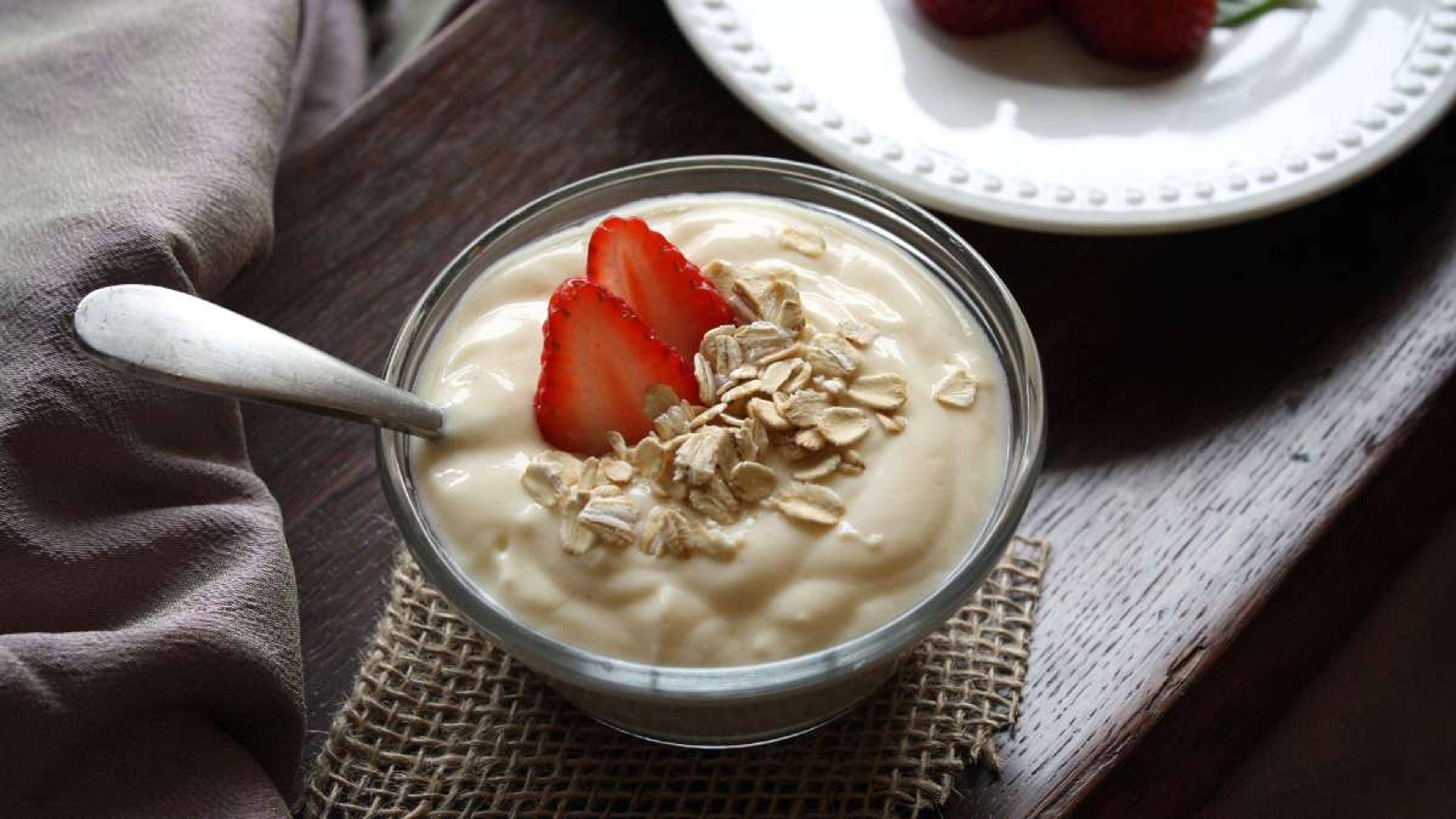Is Yogurt Vegan? Exploring the Dairy-Free Options

- Key Takeaways
- Defining Veganism
- Understanding Yogurt and its Traditional Ingredients
- What Makes Yogurt Non-Vegan?
- Vegan Alternatives to Traditional Yogurt
- Health Benefits of Vegan Yogurt
- Popular Vegan Yogurt Brands and Varieties
- Making Vegan Yogurt at Home
- Conclusion
- FAQs
Are you vegan or considering adopting a vegan lifestyle? Have you ever wondered if yogurt, a popular breakfast and snack option, is suitable for vegans? Well, here's the answer: traditional yogurt made from dairy milk is not vegan. But don't worry!
In this article, we will explore the world of vegan yogurt alternatives and provide you with all the information you need to make informed choices about your dietary preferences. Excited to discover delicious and cruelty-free yogurt options? Let's get started!
Key Takeaways
- Traditional yogurt made from dairy milk is not suitable for vegans because it comes from animals.
- Vegan alternatives to traditional yogurt are made using plant-based milk sources like soy, coconut, cashew, oat, and almond.
- Vegan yogurts offer health benefits such as high protein and calcium content, probiotics for gut health, and lactose-free options.
- Popular vegan yogurt brands include Chobani's Non-Dairy Coconut and Oat, Dream's Almond Dream or Coconut Dream Yogurt.
Defining Veganism
Veganism is a way of living that stops the use of animal products. People who are vegan do not eat meat, fish, or dairy. They also say no to eggs and honey. These are all foods made from animals or part of an animal's body.
Vegan people care about animals. They don't want them to get hurt for our food or clothes. So, they also do not wear leather shoes or wool sweaters because these come from animals too.
The aim is to avoid all forms of harm to animals for food, clothing, or any other reason.
Understanding Yogurt and its Traditional Ingredients
Yogurt has been eaten in Asia for many years. Milk and bacteria are the main things used to make it. The milk is often from cows, sheep, or goats. Bacteria are added to the milk which then changes the milk into yogurt.
The bacteria also give yogurt its distinct sour taste. This is how traditional yogurt is made.
What Makes Yogurt Non-Vegan?
Yogurt is considered non-vegan due to its traditional use of dairy milk and the presence of live cultures that require animal-based ingredients for fermentation. Curious to learn more about vegan alternatives? Keep reading!

Traditional Yogurt-Making Process
Yogurt starts as dairy milk. People heat the milk to kill any bad germs. Then, they cool it down and add good bacteria called yogurt cultures. These are small living things that eat sugar in the milk and turn it into lactic acid.
This makes the milk thick and gives yogurt its sour taste. The mix then sits for a few hours to let the bacteria do their work. After this, we get traditional dairy yogurt. But this is not fit for vegans because it uses animal milk.
Presence of Live cultures and their Role in Yogurt Fermentation
Live cultures are added to milk in the yogurt-making process. These are special types of bacteria. The names for these bacteria can be long and hard, like Streptococcus thermophilus.
Another important bacteria often used in yogurt production is Lactobacillus bulgaricus. These live cultures are responsible for fermenting the milk and transforming it into yogurt.
During the fermentation process, these bacteria consume the natural sugars present in the milk and produce lactic acid as a byproduct. This lactic acid gives yogurt its tangy flavor and thick texture. The longer the fermentation period, the more pronounced these characteristics become.
However, it's worth noting that these live cultures require nutrients to thrive and multiply. In traditional yogurt-making, these nutrients are sourced from animal-based ingredients such as dairy milk.
Not all plant-based yogurts have live cultures because not all undergo fermentation process, but many do contain good amounts of probiotics that benefits our gut health just like traditional dairy yogurts.
Vegan Alternatives to Traditional Yogurt
Plant-based milk sources like soy, coconut, cashew, oat, and almond can be used as substitutes for dairy milk in yogurt-making. The fermentation process using vegan cultures creates a delicious and healthy alternative to traditional yogurt.
To learn more about the benefits of vegan yogurt, continue reading!

Overview of plant-based milk sources: soy, coconut, cashew, oat, almond.
Plant-based yogurt can be made from different types of milk sources. Here are some popular options:
- Soy milk: Made from soybeans, it is a common choice for vegan yogurt due to its creamy texture and high protein content.
- Coconut milk: Derived from coconuts, it adds a rich and tropical flavor to vegan yogurt.
- Cashew milk: Made from cashews, it creates a smooth and creamy consistency in plant-based yogurts.
- Oat milk: Produced from oats, it is known for its mild taste and low calorie count compared to other alternatives.
- Almond milk: Created by crushing almonds, it gives a nutty undertone to vegan yogurts.
The fermentation process and the use of vegan cultures.
Vegan yogurt is made through a fermentation process using plant-based milk and vegan cultures. Instead of dairy milk, plant-based alternatives like soy, coconut, cashew, oat, or almond milk are used as the base.
These milks are inoculated with specific strains of lactic acid bacteria to initiate the fermentation process. As the bacteria consume the sugars in the milk, they produce lactic acid and give the yogurt its characteristic tangy flavor.
The live and active cultures in vegan yogurts provide probiotic benefits similar to their dairy counterparts, supporting gut health and digestion.
Health Benefits of Vegan Yogurt
Vegan yogurt offers a wealth of health benefits, including high protein and calcium content, probiotics for gut health, and lactose-free options. Discover the nutritional advantages of plant-based yogurts that can support your overall well-being.
Read more about the benefits of vegan yogurt here!

Rich Nutritional Profile
Vegan yogurts are packed with a range of nutrients, including protein, calcium, and probiotics.
NutrientDescriptionProteinVegan yogurts derived from soy milk are a good source of plant-based protein. For instance, Chobani's non-dairy Greek yogurt contains 15g of protein.CalciumMany vegan yogurts are fortified with calcium, a nutrient necessary for bone health. They compete well with dairy yogurts in delivering this vital micronutrient.ProbioticsThe fermentation process in the preparation of vegan yogurts encourages the growth of beneficial bacteria, or probiotics. These boost gut health and support day-to-day bodily functions.It's important to note that the nutritional value and content can differ greatly between brands and varieties. Always read the nutritional information on the product to make an informed choice. Vegan yogurt, when chosen mindfully, can be a healthy addition to a balanced diet.
Benefits for lactose-intolerant individuals
Lactose-free yogurt is a great option for people who are lactose-intolerant. Lactose is a natural sugar found in milk and dairy products, and it can cause digestive issues for those who have difficulty digesting it.
However, lactose-free yogurt is made without lactose, which means that these individuals can enjoy the health benefits of yogurt without experiencing any discomfort. This includes getting essential nutrients like protein and calcium, as well as beneficial probiotics that promote gut health.
By choosing lactose-free yogurt, people with lactose intolerance can still include this nutritious food in their diet and support their overall well-being.
Promotes gut health
Plant-based yogurts play an important role in promoting gut health. They are rich in probiotics and live cultures, which are beneficial bacteria that support a healthy digestive system.
These probiotics help maintain the balance of good bacteria in the gut, improving digestion and nutrient absorption. Plant-based yogurts also provide fiber from ingredients like soy, oats, or nuts, which can further enhance digestive health by promoting regular bowel movements and reducing inflammation in the gut.
Additionally, plant-based yogurts are generally easier to digest than dairy-based yogurts, making them a suitable choice for individuals with lactose intolerance or dairy allergies.
Popular Vegan Yogurt Brands and Varieties
Some popular vegan yogurt brands and varieties include Chobani's Non-Dairy Coconut and Oat, Dream's Almond Dream or Coconut Dream Yogurt, Forager's Cashewgurt, Kite Hill's Almond Milk Yogurt, and Oatly's Oatgurt.
Importance of Reading Labels
It is extremely important to read labels carefully when choosing vegan yogurt, as some brands may contain hidden animal ingredients. Labeling laws do not always clearly indicate which ingredients are unsuitable for vegans or vegetarians.
Dairy products or other animal-derived ingredients can be present in supposedly vegan yogurts, making it challenging for those following a plant-based diet. By being mindful of hidden animal ingredients and reading labels thoroughly, vegans can make informed choices and avoid consuming products that go against their values.
Chobani: Non-Dairy Coconut and Oat
Chobani offers a non-dairy yogurt alternative made from coconut and oat milk. Their vegan yogurt line is gluten-free and dairy-free, making it suitable for vegans. This non-dairy yogurt is creamy and spoonable, just like traditional yogurt.
Dream: Almond Dream or Coconut Dream Yogurt
Almond Dream and Coconut Dream Yogurt are both non-dairy alternatives to traditional yogurt. Almond Dream offers five different varieties, including plain, vanilla, strawberry, mixed berry, and coconut.
People have different preferences with some enjoying the creamy almond version while others prefer the richness of the coconut yogurt. Both brands provide a dairy-free option that is made from real almonds or coconuts, respectively.
These yogurts also contain live and active cultures for added health benefits. So whether you choose Almond Dream or Coconut Dream Yogurt, you can enjoy a vegan-friendly and delicious alternative to traditional dairy yogurt.
Forager: Cashewgurt
Forager Cashewmilk Yogurt, a popular vegan yogurt brand, offers a dairy-free and plant-based alternative to traditional yogurt. Made from organic ingredients, this yogurt does not contain added sugar or flavorings.
It is gluten-free, soy-free, non-GMO, USDA certified organic, and kosher. Forager Cashewmilk Yogurt comes in various flavors like unsweetened plain and strawberry. Packed with 6 strains of live active probiotics, it provides a delicious and nutritious option for those following a vegan lifestyle.
Kite Hill: Almond Milk Yogurt
Kite Hill Almond Milk Yogurt is a popular vegan yogurt brand known for its dairy-free and gluten-free options. Made with real vanilla bean, fresh almond milk, and live active cultures, Kite Hill offers Greek plant-based yogurts that are thick, creamy, and versatile.
With up to 17g of almond and soy protein per serving and no added sugars, their Greek yogurts are considered one of the best vegan yogurt options available. So if you're looking for a delicious and nutritious dairy-free alternative, Kite Hill Almond Milk Yogurt is definitely worth trying.
Oatly: Oatgurt
Oatly Oatgurt is a vegan yogurt alternative made from oats. It does not contain any dairy or animal-derived ingredients, making it suitable for those following a vegan lifestyle. Oatly Oatgurt has a signature tanginess and is cultured with five live and active vegan probiotic strains.
It is part of Oatly's range of dairy-free products, including flavored yogurts. So if you're looking for a plant-based option that tastes great and supports your ethical choices, give Oatly Oatgurt a try!
Making Vegan Yogurt at Home
To make vegan yogurt at home, you will need a yogurt maker or an Instant Pot with a yogurt setting, plant-based milk such as soy or almond, and a vegan yogurt culturefor fermentation.

Simplicity and Benefits
Making homemade vegan yogurt is easy and brings many benefits. It allows you to have more control over the ingredients, ensuring a healthier option free from additives or artificial sweeteners.
You can also customize the flavor according to your preferences by adding fruits, nuts, or even natural sweeteners like maple syrup. Besides being cost-effective, homemade vegan yogurt provides a higher probiotic content compared to store-bought options, supporting gut health and promoting digestion.
So why not give it a try and enjoy all the advantages of making your own delicious vegan yogurt at home?.
Equipment needed
To make vegan yogurt at home, here are the equipment you'll need:
- Yogurt maker: This appliance is specifically designed to ferment yogurt and maintain the ideal temperature for the culture to thrive. It ensures consistent results and takes the guesswork out of the process.
- Instant Pot with yogurt setting: If you already have an Instant Pot, you can use its yogurt setting instead of a dedicated yogurt maker. The Instant Pot provides a controlled environment for fermentation and produces creamy vegan yogurt.
Using Vegan Yogurt Culture for Fermentation.
Vegan yogurt can be made by using vegan yogurt culture and plant-based milk. Here's how you can do it:
- Choose a plant-based milk such as soy, coconut, cashew, oat, or almond.
- Heat the milk to a specific temperature to ensure proper fermentation.
- Add the vegan yogurt culture to the heated milk.
- Let the mixture sit at a warm temperature for several hours, allowing the live cultures to ferment the milk and create yogurt.
- After fermentation, refrigerate the yogurt to thicken and develop its creamy texture.
- You can customize your vegan yogurt by adding flavors, fruits, or sweeteners of your choice.
Conclusion
In conclusion, while traditional yogurt made with dairy milk is not vegan, there are plenty of delicious and nutritious alternatives available. Explore the world of plant-based yogurts for a healthier and more ethical choice.
Addressing the primary question: Is yogurt vegan?
Yogurt is not inherently vegan because it traditionally uses dairy milk in its production. However, there are now many vegan alternatives available that use plant-based milks such as soy, coconut, cashew, oat, and almond.
These non-dairy yogurts go through a similar fermentation process using vegan cultures to achieve the creamy texture and tangy flavor of traditional yogurt. People who follow a vegan diet can enjoy these alternatives while still getting the health benefits of yogurt, such as protein, calcium, and probiotics.
Encouraging readers to explore vegan yogurt options for health and ethical reasons.
Try out vegan yogurt options to improve your health and support ethical practices. Vegan yogurts are made from plant-based milk like soy, almond, oat, or coconut milk. They provide essential nutrients like fiber, calcium, protein, and probiotics that promote gut health.
By choosing vegan yogurt, you're making a compassionate choice that doesn't involve harming animals. So go ahead and explore the wide variety of delicious and nutritious vegan yogurt options available in the market!
FAQs
1. Is yogurt considered to be a vegan food?
No, yogurt is not considered to be a vegan food. Traditional yogurt is made from dairy milk, which comes from animals. However, there are vegan alternatives available that are made from plant-based ingredients such as soy or almond milk.
Vegan yogurt is a dairy-free yogurt made from plant-based products, like coconut, peas or pili.
2. Can you find vegan options at grocery stores?
Yes! You can find lots of vegan options in most grocery stores, like Whole Foods and Forager Project!
3. Are there different flavors of vegan yogurts?
Yes! Vegan yogurts come in many tasty flavors such as raspberry, peach, mango orange blossom and key lime cherry.
4. How can I use the dairy-free yogurt?
You can enjoy your dairy-free Greek-style yogurts plain or add fresh fruits like berries and granola to make it more tasty!
5. Can you make smoothies using this type of yogurt?
Sure! Dairy-free yogurts are great for smoothies.You just need to blend them with some ice cream and strawberry rose or strawberry hibiscus for a yummy treat!
6. How healthy are these vegan yogurts?
Mostly they are low in calories but high in pea protein which keeps us full longer.It's bestto check the label for grams of sugar though.

